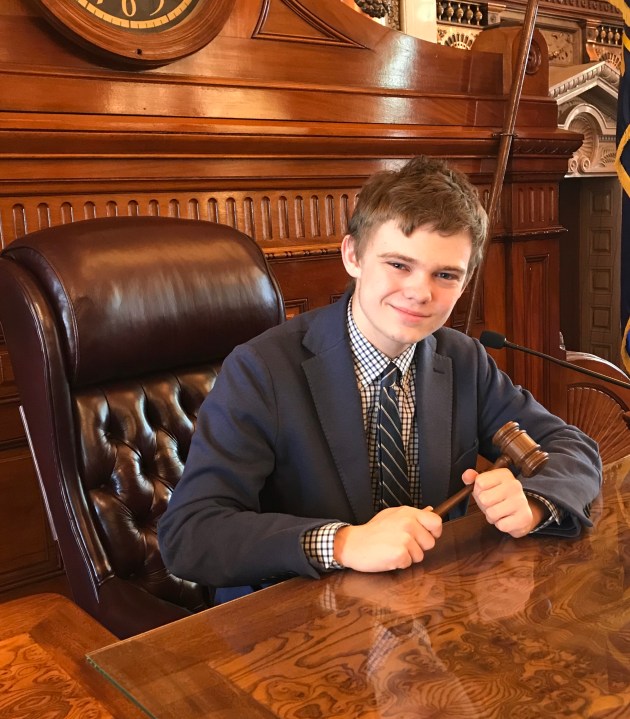Meet the dog and ‘sea turtle’ who launched campaigns for office

Most political candidates across the country want to stand out, but some grab more attention because they have four legs.
Angus, for example, is a 3-year-old candidate with four legs and a tail who launched his campaign for Kansas’s governor seat last year.
Then there’s “Sea Turtle,” a woman who identifies herself by the nickname as a symbol to advocate for animal rights.
Both Angus the dog and the woman known as “Sea Turtle” are real, unconventional candidates that have or are now running for office.
Surprisingly, the efforts, while unusual, aren’t all that rare as advocates seek to get attention for a cause or make a political point.
Here are a few of the most unconventional campaigns for office uncovered by The Hill over the past two years.
The “Sea Turtle”
Mayoral candidate Elizabeth Drayer is running under the nickname “Sea Turtle” with the intention of giving direct representation to the loggerhead sea turtles in the Clearwater, Fla., government. 
Drayer, who identifies herself as “Sea Turtle” when answering her phone, decided to run for mayor because she said the environmental movement has made no progress so far.
The retired attorney said she believes the definition of voters should extend to include fiduciaries of ecosystems and animals, including loggerhead sea turtles. As a fiduciary, she said she would consider the environmental impacts from her decisions as mayor.
“Since animals and trees and mangroves can’t run a city, you have to elect humans who are fiduciaries for those entities,” she said. “They’re like the legal guardians that children would have in the legal system and work in their interests.”
The “Sea Turtle” was hesitant at first to jump in the race, afraid her run and her ideas would negatively impact the environmental movement.
“It’s very new, and new ideas are usually mocked, and I didn’t want the movement to suffer because people were laughing at some crazy turtle lady,” she said.
Drayer will take on former City Councilman Bill Jonson and former Mayor Frank Hibbards in the March election, according to the Tampa Bay Times.
The dog
After several teenage candidates hopped in the 2018 Kansas gubernatorial race, Terran Woolley was curious about the qualifications needed to enter the governor’s race. Once he realized his dog Angus qualified, Woolley submitted documents for the canine to run for governor as a Republican.
“Honestly, if your candidates are so poorly chosen that an animal or a teenager without maybe a lot of world experience can beat them, I think they ought to be allowed to run,” Woolley said.
A few days after receiving national attention, the Secretary of State’s Office denied Angus’s bid for office. Woolley asserted that the Secretary of State Kris Kobach, a Republican candidate for governor, was “scared” of Angus’s run.
Angus’s owner said he would have continued the campaign until it may have negatively affected his preferred candidate.
“We’ve had towns actually here in Kansas that have elected dogs mayors and that sort of thing,” Woolley said. “But I think we overstepped the political comfort bounds by running for an actual office that might wield a little bit of power.”
Angus, whose platform involved a lifetime Chuckit ball supply, Tempur-Pedic king-size beds for everyone and an anti-squirrel agenda, was removed from the election in February 2018 less than a week after his campaign began. He was about 3 years old — 21 in dog years — at the time.
The accidental candidate
While working as a credit union supervisor, Hayden Pedigo unintentionally started his campaign for the Amarillo, Texas, city council in a unique way: with a satirical campaign ad.
Pedigo said he wasn’t serious about running for Amarillo’s city council when he released the video, but it received traction online and aired on the network Adult Swim, so he decided he would give the election a shot.
His first of five videos garnered the most attention. It showed Pedigo throwing a folded chair and using a measuring tape around Amarillo.
“It started off kind of jokingly, but it ended up turning very serious,” Pedigo said. “I never try to pretend like I had these deeper motives behind it.”
The turning point for the 24-year-old candidate was when he was invited to speak at a class at Randall High School. Pedigo said he did not feel qualified but was inspired after realizing the high school students didn’t realize candidates could run at age 18.
“My main goal is to inspire other younger people to try, you know, ‘cause ultimately if you lose you can still do something incredible with it,” he said.
Pedigo also advocated for Amarillo’s lower income communities after seeing “one-sided progress” in the city. He promoted ending at-large elections for council members and implementing district elections, so the council could become more representative of the city.
Pedigo lost to the incumbent Amarillo City Councilwoman Elaine Hays in the May election, according to The Amarillo Pioneer.
The candidate who switched parties (twice)
Scott Walker has launched a campaign for a seat in Congress three times, switching parties between each run. This time Walker is running as a Democrat for Sen. Christopher Coons’s (D-Del.) seat. 
Walker was the GOP candidate for Delaware’s House seat in 2018, winning the primary in an upset and losing the seat to Rep. Lisa Blunt Rochester (D) in the general election. As a Democrat, Walker also lost to Rochester in the 2016 primary, according to Delaware Online.
The Delaware candidate said he switched back to running as a Democrat for his 2020 run because Republicans make up only 28 percent of registered voters in the state, making the political label a “bad brand” for candidates in the state.
He originally swapped parties because he said he didn’t feel welcome in the Democratic party.
“I’m comfortable being outside,” he said. “I don’t want to be a part of a party. Yeah, I tell people it doesn’t matter what my party label is. It’s really immaterial. I work for the people. I don’t work for a political party.”
For his Senate race, Walker plans to focus on improving health care because “Americans are in terrible health.”
“Instead on Capitol Hill, they’re running around, chasing each other’s tails on impeachment and silly stuff,” he said. “That just doesn’t matter. And it’s a crime because ordinary Americans are suffering.”
Walker, a former horticulturist and real estate manager of recovery rooms, runs a grassroots campaign, making appearances in intersections and cooking burgers for the homeless. He said he spent less than $5,000 on his 2018 campaign.
He will face Coons on Sept. 15, according to Ballotpedia.
The teenagers
Several teenagers jumped in the 2018 Kansas gubernatorial race after discovering the state did not have an age requirement for candidates.
Two of the teens, Democratic candidate Jack Bergeson and Republican candidate Tyler Ruzich, both entered the race because they wanted to draw attention to political stances and issues they felt were not receiving deserved recognition.
Ruzich, who joined the race at 11 p.m. while procrastinating physics homework, describes himself as a “Republican of the next generation,” and prioritized supporting public schools in the campaign.
On the other side of the aisle, Bergeson, who now attends North Dakota State University in Fargo, said he was a social Democrat, said he brought the discussion of marijuana legalization to the election conversation.
Their respective parties treated their candidacies differently, they said, with Bergeson describing the Democratic party as “welcoming,” while Ruzich said he was “systematically silenced” by the Republican party when he was barred from the debates.
“At the beginning it was ‘Oh well, look what’s going on in Kansas. These crazy teens are running for governor,’ ” said Ruzich, who is now a student at the University of Massachusetts. “But as the election got nearer, and more a nd more stories came out, I started to find that age was not being discussed as much as my policies.”
nd more stories came out, I started to find that age was not being discussed as much as my policies.”
After their campaign announcements, a law passed raising the minimum running age to 25, scheduled to go into effect in 2022, which Bergeson called “obviously targeted” and done to “delegitimize” their campaigns.
“There’s a kind of a prevailing thought about young people that young people don’t care about politics or young people are apathetic, or they don’t vote, whatever,” Bergesen said. “I’m like there’s a reason for that, because they feel like all the politicians are like 60, 70 years old and don’t represent them.”
Both teenagers lost their primaries in August 2018, to now-Gov. Laura Kelly (D) and former Secretary of State in Kansas Kris Kobach (R), according to Ballotpedia.
Copyright 2024 Nexstar Media Inc. All rights reserved. This material may not be published, broadcast, rewritten, or redistributed..















